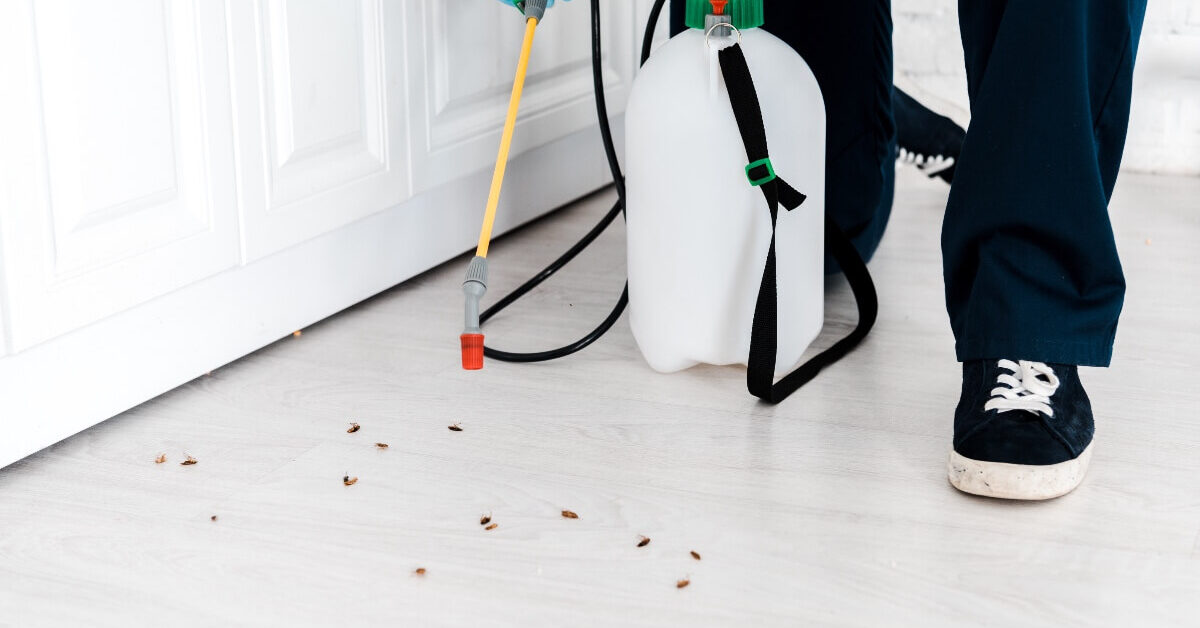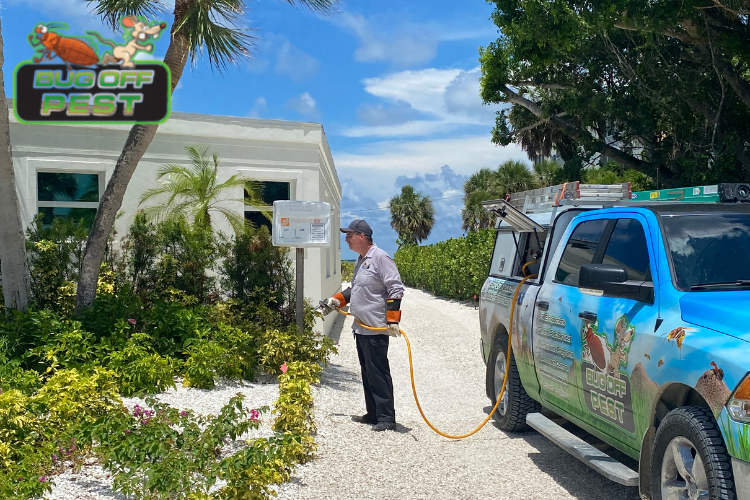Top-rated Pest Control in Charlotte County for Your Property and Company
Discover the Significance of Pest Control in Keeping a Healthy Setting and Therapy Techniques

The Duty of Insects in Communities
Parasites, usually watched entirely as problems, play a complex function in environments that is important for maintaining environmental equilibrium. They contribute dramatically to different environmental processes, including pollination, nutrition biking, and bug control. For circumstances, many insect varieties, such as bees and butterflies, are important pollinators for a large variety of plants, which consequently sustains biodiversity and food production.
In addition, parasites act as victim for many killers, developing a crucial link in food internet. This connection ensures the survival of various types and assists control populaces within ecosystems (Termite treatment Port Charlotte). Decomposer parasites, such as particular beetles and fungis, are crucial in damaging down natural matter, therefore enriching soil and facilitating nutrient recycling.
On the other hand, while bugs can be helpful, their overpopulation or intrusion right into non-native atmospheres may disrupt these ecological features. This intricacy emphasizes the relevance of recognizing parasite characteristics, as efficient pest management approaches need to take into consideration both their environmental functions and prospective effect on human tasks. Stabilizing pest presence while minimizing injury is crucial for maintaining the stability of communities and ensuring farming efficiency.
Health Threats Related To Parasites
The visibility of bugs in various settings prolongs beyond their eco-friendly roles, as they additionally position substantial health threats to animals and human beings. Numerous parasites, including parasites, pests, and rodents, are service providers of diseases that can have serious wellness implications. For circumstances, rats are known to send hantavirus and leptospirosis, both of which can lead to serious respiratory system and kidney issues, respectively.
Pests such as mosquitoes and ticks are notorious for spreading out vector-borne diseases like malaria, dengue fever, and Lyme condition. These illnesses can result in high morbidity and mortality prices, particularly in prone populations. Furthermore, parasites like insects and cockroaches can worsen allergic reactions and bronchial asthma, adding to respiratory issues in individuals, particularly those with pre-existing problems.
In addition, the presence of pests can result in mental anxiety and pain, influencing total health. Contamination of food and surface areas by parasite droppings and continues to be can bring about foodborne illnesses, highlighting the importance of maintaining sanitary conditions. For that reason, comprehending the health and wellness dangers connected with pests is essential in acknowledging the necessity of effective pest Read Full Article management strategies to guard animal and human wellness.

Advantages of Reliable Parasite Control
Effective insect control is vital for maintaining a risk-free and healthy atmosphere, as it constantly mitigates the various dangers related to bug problems. Among the main benefits of efficient insect administration is the reduction of carcinogen. Pests such as cockroaches, mosquitoes, and rodents are vectors for illness that can impact both pet dogs and human beings. By managing these populations, the likelihood of disease transmission is significantly lowered.
In addition, efficient insect control safeguards home and frameworks from damage. Several insects, like termites and woodworker ants, can trigger comprehensive architectural damage that may need pricey repair services. By proactively managing these infestations, services and property owners can secure their investments.
One more substantial advantage is the enhancement of total quality of life. A pest-free atmosphere adds to psychological health and decreases stress and anxiety related to invasions. In addition, effective insect control promotes a more secure environment for children and family pets, ensuring that homes stay shelters cost-free from disease-causing microorganisms and hazardous chemicals.
Usual Pest Control Techniques

In the realm of bug administration, various strategies are utilized to combat problems efficiently. These techniques can be extensively classified into 3 primary approaches: social, mechanical, and chemical controls.
Cultural control includes modifying methods to reduce insect facility, survival, and reproduction. This may include plant rotation, correct sanitation, and environment manipulation, which collectively develop an environment much less for pest expansion.
Mechanical control utilizes physical approaches to eliminate insects (Termite treatment Port Charlotte). Methods such as vacuum cleaners, obstacles, and catches are commonly used to directly remove insects from a location. This strategy is particularly effective for managing rodents and pests without using unsafe chemicals
Chemical control involves the application of pesticides to handle parasites. These substances can be categorized into fungicides, herbicides, and insecticides, each targeting particular kinds of bugs. It is vital to make use of these chemicals carefully, sticking to security guidelines and policies to reduce potential harm to non-target species and the environment.
Each parasite control strategy has its limitations and benefits, and usually, an incorporated strategy incorporating several methods produces the best cause keeping a pest-free atmosphere.
Sustainable Insect Management Practices
Lasting bug management see post practices encompass a variety of techniques designed to decrease environmental impact while properly controlling bug populations. These techniques focus on making use of environmentally pleasant methods over chemical pesticides, therefore lowering the risk of damage to non-target varieties, consisting of valuable bugs, wild animals, and humans.
Integrated Parasite Management (IPM) is a keystone of sustainable techniques, combining organic, cultural, mechanical, and chemical tactics to take care of insects. For instance, organic control involves presenting all-natural predators or bloodsuckers to subdue insect populaces. Cultural methods, such as plant rotation and polyculture, interrupt pest life cycles and boost community strength.
Mechanical approaches, such as barriers or catches, can properly prevent pest gain access to without chemical intervention. Furthermore, keeping healthy and balanced communities with correct dirt monitoring, plant health, and biodiversity can naturally reduce insect problems.
Education and learning and recognition are essential parts, encouraging individuals and communities to recognize pest threats early and execute safety nets. Termite treatment Port Charlotte. By cultivating an all natural strategy that stabilizes parasite control with eco-friendly honesty, lasting parasite monitoring techniques not just secure structures and crops but also contribute to a much healthier setting for future generations
Final Thought

Understanding the wellness threats connected with pests is critical in acknowledging the necessity of reliable bug management approaches to secure animal and human health.
Reliable bug control is important for keeping a safe and healthy and balanced environment, as it continually alleviates the various threats associated with parasite infestations.Integrated Parasite Administration (IPM) is a keystone of sustainable techniques, combining organic, social, mechanical, and chemical techniques to take care of insects. By recognizing the role of bugs, recognizing involved wellness risks, and utilizing varied treatment methods, a lasting method to pest monitoring can be achieved. Integrated Insect Monitoring (IPM) emphasizes an alternative technique that mitigates damage to valuable organisms while efficiently regulating pest populations.